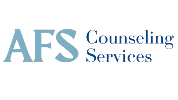10 Tips to Manage ADHD Symptoms
Attention Deficit Hyperactivity Disorder (ADHD) is a common mental health disorder that affects both children and adults. It can present challenges in various aspects of life, including work, school, and personal relationships. However, with the right strategies, people with ADHD may be able manage their symptoms effectively and lead fulfilling lives.
Here are some tips you could use to help manage ADHD symptoms:
1. Develop a Routine
Establishing a structured daily routine may be helpful in staying organized and focused. For example, try to set specific times for certain tasks like working, exercising, meeting friends, etc. Being consistent will help reduce chaos and improve your productivity.
2. Use Visuals
Consider using things planners, to-do-lists, or calendars as visual aids in trying to manage your ADHD symptoms. Writing down important things like appointments, tasks, or deadlines can help reduce feeling overwhelmed. Develop a habit of identifying if something is a priority, urgent, or important. Particularly, just because something is important it does not mean it is urgent and vice versa.
3. Take Small Steps in Completing Tasks
A lot of times, people tend to look at tasks as one big step. For individuals struggling with ADHD, large tasks could feel overwhelming. Try breaking the tasks into smaller and more manageable projects to make the tasks feel less daunting. Remember to celebrate the small wins along the way.
4. Set Specific Goals
You want to make sure that you are setting goals that are specific, measurable, attainable, relevant, and time-bound (SMART). Creating such goals will help you with motivation and direction when it comes to focus and tracking progress.
5. Reduce Distractions
It is important to try and identify some of the distractions in your environment. Once you identify the distractions, try to work on limiting and minimizing them. For example, one might use noise-canceling headphones, take a break from social media, or turn off the television as ways to minimize distractions. Such small changes are helpful in increasing your concentration and focus.
6. Practice Mindfulness
By practicing mindfulness on a regular basis, individuals with ADHD are able to increase their confidence, self-awareness, and have better control over their symptoms. Some mindfulness skills like meditation, breathing exercises, yoga, can help improve one’s impulsivity and attention.
7. Be Physically Active
Engage in activities that you enjoy such as running, walking, hiking, or bike riding to help with improving focus, reducing hyperactivity, and enhancing your mood.
8. Seek Professional Support
Finding a mental health professional who specializes in ADHD is a great way to obtain tailored strategies and support. Therapy, coaching, and medication management are ways that can assist you in effectively managing ADHD symptoms. It’s okay to seek help.
10. Build a Strong Support System
Knowing that your friends, family, and colleagues are supportive in your journey of managing ADHD can create a space of understanding, encouragement, and practice help when you need it.
When it comes to managing your ADHD symptoms, be patient and give yourself some grace because it is a continuous process. Practicing some of these skills can help with improving your ability to focus, stay organized, and achieve your goals. Remember, its okay to seek professional help as part of your supportive network because it can increase the effectiveness of these tips.

